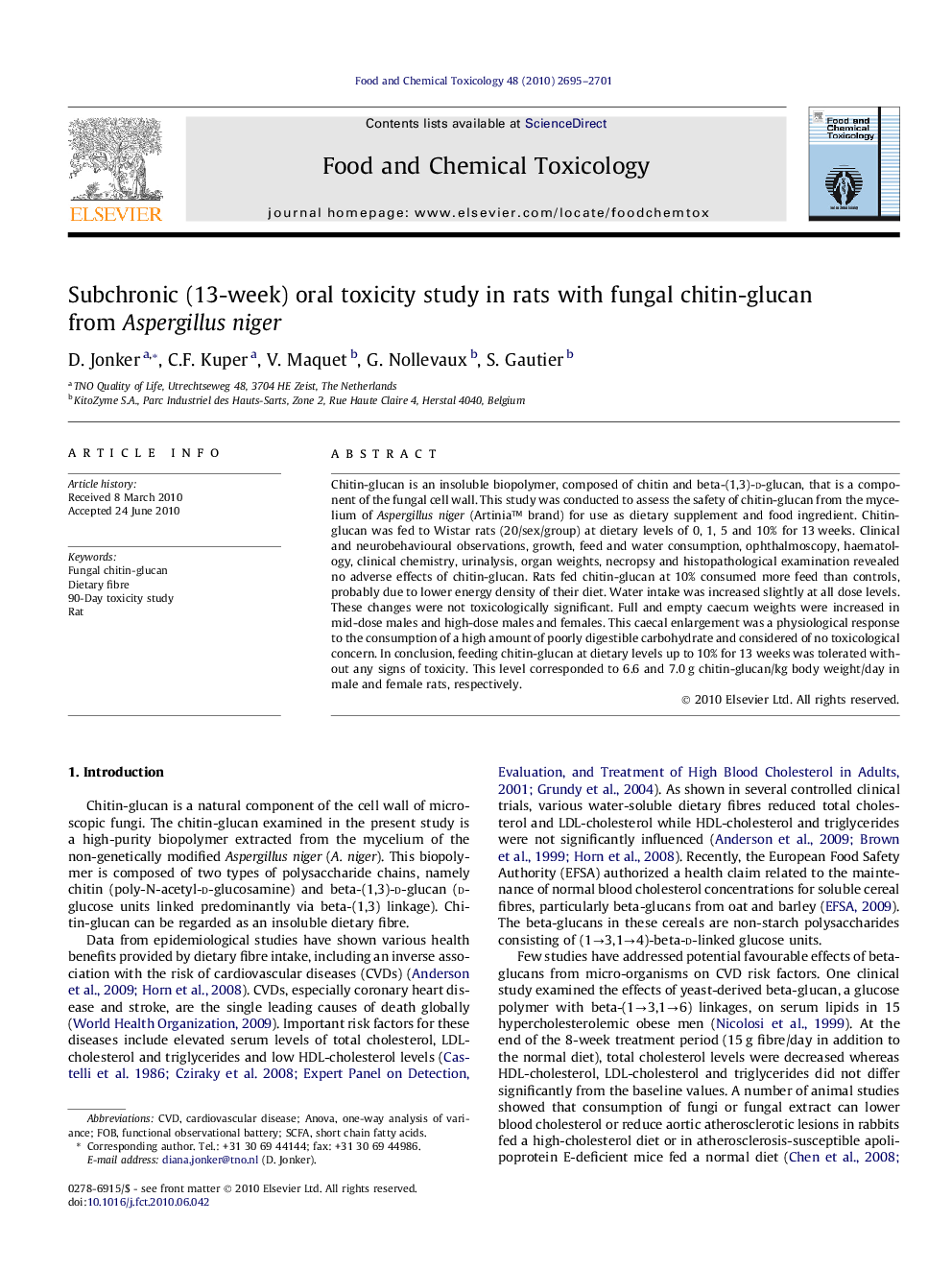| Article ID | Journal | Published Year | Pages | File Type |
|---|---|---|---|---|
| 2585576 | Food and Chemical Toxicology | 2010 | 7 Pages |
Chitin-glucan is an insoluble biopolymer, composed of chitin and beta-(1,3)-d-glucan, that is a component of the fungal cell wall. This study was conducted to assess the safety of chitin-glucan from the mycelium of Aspergillus niger (Artinia™ brand) for use as dietary supplement and food ingredient. Chitin-glucan was fed to Wistar rats (20/sex/group) at dietary levels of 0, 1, 5 and 10% for 13 weeks. Clinical and neurobehavioural observations, growth, feed and water consumption, ophthalmoscopy, haematology, clinical chemistry, urinalysis, organ weights, necropsy and histopathological examination revealed no adverse effects of chitin-glucan. Rats fed chitin-glucan at 10% consumed more feed than controls, probably due to lower energy density of their diet. Water intake was increased slightly at all dose levels. These changes were not toxicologically significant. Full and empty caecum weights were increased in mid-dose males and high-dose males and females. This caecal enlargement was a physiological response to the consumption of a high amount of poorly digestible carbohydrate and considered of no toxicological concern. In conclusion, feeding chitin-glucan at dietary levels up to 10% for 13 weeks was tolerated without any signs of toxicity. This level corresponded to 6.6 and 7.0 g chitin-glucan/kg body weight/day in male and female rats, respectively.
